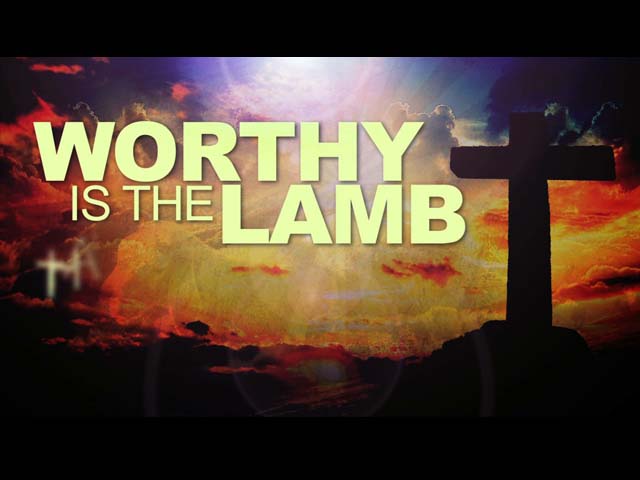-
The Lamb Of God
Contributed by Dennis Lee on Mar 16, 2020 (message contributor)
Summary: This sermon is part of the names of Jesus series and looks at the name, "The Lamb of God."
The Names of Jesus
“The Lamb of God”
It is when John the Baptist saw Jesus coming to him at the River Jordan for baptism that this name became embedded in the annuals for God’s story for the human race.
John said, “Behold! The Lamb of God who takes away the sin of the world!” (John 1:29 NKJV)
Most people, even those who don’t go to church, have heard of this event and the words John spoke, along with Jesus’ baptism when the Holy Spirit descended upon Him as a dove and the God the Father said, “This is My beloved Son, in whom I am well pleased.” (Matthew 3:17 NKJV)
But here is where it stops, because very few know and/or understand the full significance of John’s statement and the name he gave to Jesus as “The Lamb of God,” or the Father’s pronouncement that Jesus is His Son, and its ramifications.
The significance of the Father calling Jesus His Son, is seen in how Jesus, as God’s Son, is none other than the second person of the Godhead, or what we know as the doctrine of the Trinity, which we looked at in some detail in our study on Jesus’ name, “I AM.”
Today I’d like to focus on the name John the Baptist gives to Jesus as “The Lamb of God.” To understand this name’s full significance well be looking at the sacrificial system God set up in the Law. Then we’ll look at those scriptures of how the sacrifice of a lamb foreshadows the coming of the Messiah and how prophecy confirms the Messiah coming as that sacrificial lamb. We’ll end by looking at what all this means to us.
So let’s begin by understanding the Law’s sacrificial system.
The Law of Sacrifice
The sacrificial system is mainly laid out in the book of Leviticus, and it is known as the law of sacrifice and atonement, that is, being made right with God through an intermediary or substitute, which was mainly though that of a lamb, goat, or bull.
But it actually had its beginnings with the original sin and the sacrifice offered by God Himself.
“Also for Adam and his wife the Lord God made tunics of skin, and clothed them.” (Genesis 3:21 NKJV)
When Adam and Eve fell for Satan’s temptation and sinned, they saw their nakedness and tried to hide it from God by sewing fig leaves together. But there is nothing humanity can do that can ever make itself right before God. Instead it takes a sacrifice, that is, it takes the death of an innocent animal to atone for sin.
And so what is recorded for us is the very first death, not only the death of innocence, which included Adam and Eve because of their sin, but also those animals that were sacrificed to cover their nakedness. These animals were innocent of the crime, but they had to pay for it with their lives.
But why is the death of an innocent animal necessary? Can’t God just forgive sin without anything attached to it? And while the answer could easily be yes, God knew of our propensity to sin, especially when there isn’t anything that will make us sit up and say, “Wait, look at what it’s costing.”
What did it cost?
The Death of an Innocent
Throughout the Law, the sacrificial death of an innocent animal is brought out in several ways.
First is the wording in that they had to be without spot or blemish, that is, they needed to be practically perfect in every way.
Whenever a sacrifice was made they had to make sure that the animal had no defect, that it was a perfect sacrifice. Over 40 times in the books dealing with the law of sacrifice, mainly Leviticus, Numbers, and Deuteronomy, it says that the offering was to be without blemish.
There are two words used in these texts and both basically mean that the offering was to be undefiled, upright, whole, and not stained with any defects. In fact, offering anything less would be an insult to God.
“You shall not sacrifice to the Lord your God a bull or sheep which has any blemish or defect, for that is an abomination to the Lord your God.” (Deuteronomy 17:1 NKJV)
The idea of innocence points to being without sin. Without blemish means being undefiled, and that which defiles us in the sight of God is sin. Further it means being upright and whole, that is, where no sin exists.
This idea of being innocent and without sin is also seen in the offering of the animals themselves. Again, throughout the law of sacrifice it says that the priest were to lay their hands upon the heads of the animals, and in essence transfer the sin of the guilty onto the innocent animal, which would then cost the animal its life.

 Sermon Central
Sermon Central



